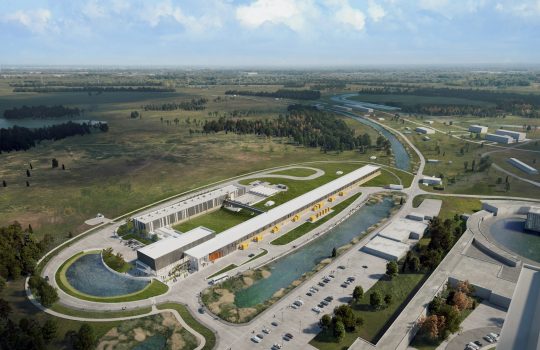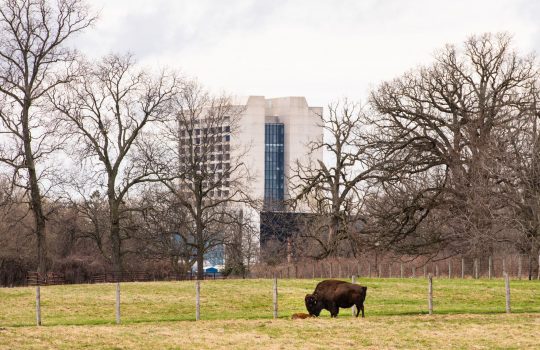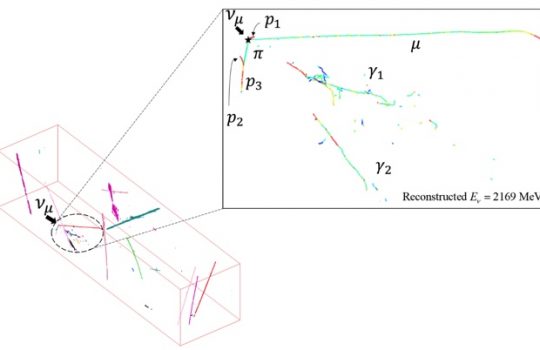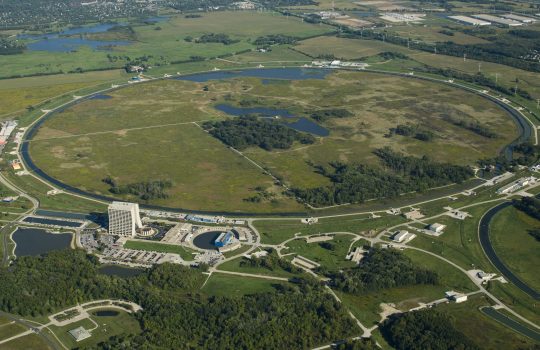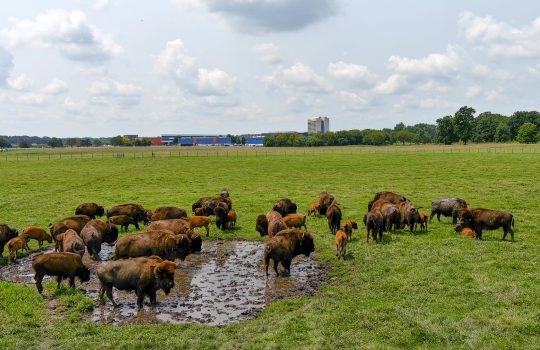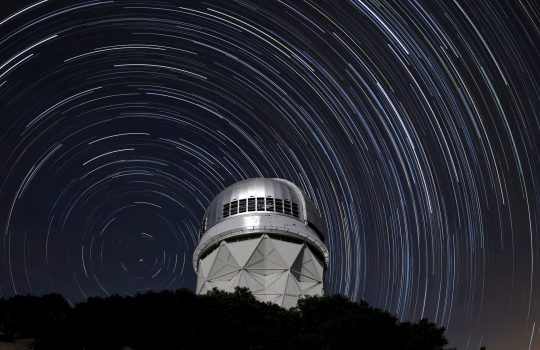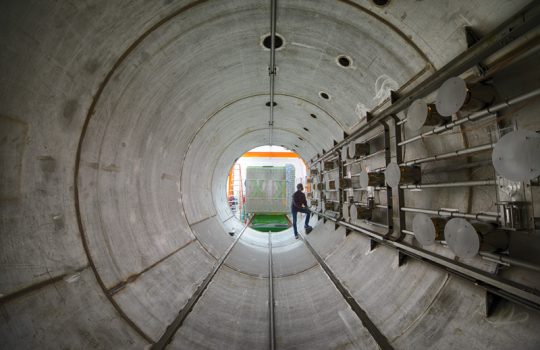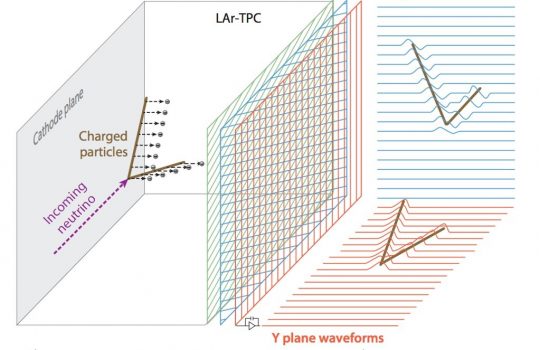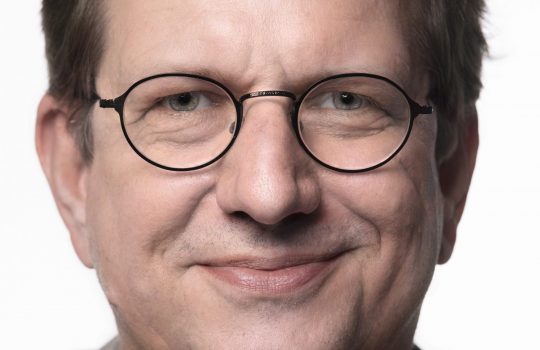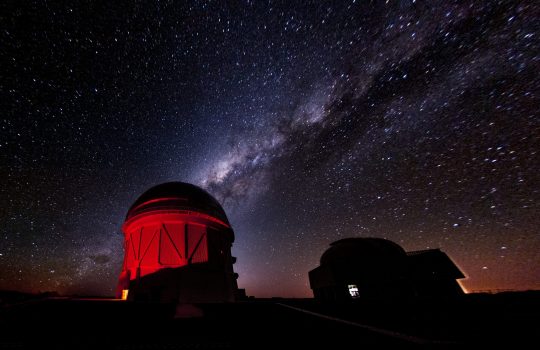New accelerator at Fermilab approved for construction start
The Department of Energy has formally approved the start of full construction for the PIP-II project, an upgrade to the Fermilab accelerator complex that includes a new linear accelerator. PIP-II is an essential enhancement that will power the world’s most intense high-energy neutrino beam. It is the first particle accelerator built in the United States with significant contributions from international partners.
Fermilab is home to a new baby bison
The bison population is growing as the birth ushers in spring.
Breakthrough MicroBooNE measurement elucidates neutrino interactions
For the first time, physicists extracted the detailed “energy-dependent neutrino-argon interaction cross section,” a key value for studying how neutrinos change their flavor.
CDF collaboration at Fermilab announces most precise ever measurement of W boson mass to be in tension with the Standard Model
Scientists of the Collider Detector at Fermilab collaboration have achieved the most precise measurement to date of the mass of the W boson, one of nature’s force-carrying particles. The measured value shows tension with the value expected based on the Standard Model of particle physics.
Fermilab site reopens to the public, welcomes visitors
Beginning March 28, Fermilab will again be open to the public for outdoor activities, such as biking, hiking, running and viewing the bison herd.
Dark Energy Spectroscopic Instrument (DESI) creates largest 3D map of the cosmos
After less than a year of data taking, DESI has already mapped out more galaxies than all previous 3D surveys combined — and it’s just getting started.
MicroBooNE experiment’s first results show no hint of a sterile neutrino
Four complementary analyses by Fermilab’s MicroBooNE show no signs of a theorized fourth kind of neutrino known as the sterile neutrino. Its existence is considered a possible explanation for anomalies seen in previous physics experiments.
Physicists achieve significant improvement in spotting accelerator-produced neutrinos in a cosmic haystack
Ground-breaking image reconstruction and analysis algorithms developed for surface-based MicroBooNE detector filter out cosmic ray tracks to pinpoint elusive neutrino interactions with unprecedented clarity.
Joint appointment at JGU and Fermilab: Alfons Weber is JGU’s new W3 Professor of Experimental Particle Physics
Alfons Weber has achieved full professorship teaching Experimental Particle Physics at Johannes Gutenberg University Mainz. His joint appointment at JGU and Fermilab represents the expansion of PRISMA+ neutrino physics research program.
Dark Energy Survey releases most precise look at the universe’s evolution
The Dark Energy Survey collaboration has created the largest ever maps of the distribution and shapes of galaxies, tracing both ordinary and dark matter in the universe out to a distance of over 7 billion light years. The analysis, which includes the first three years of data from the survey, is consistent with predictions from the current best model of the universe, the standard cosmological model. Nevertheless, there remain hints from DES and other experiments that matter in the current universe is a few percent less clumpy than predicted.

